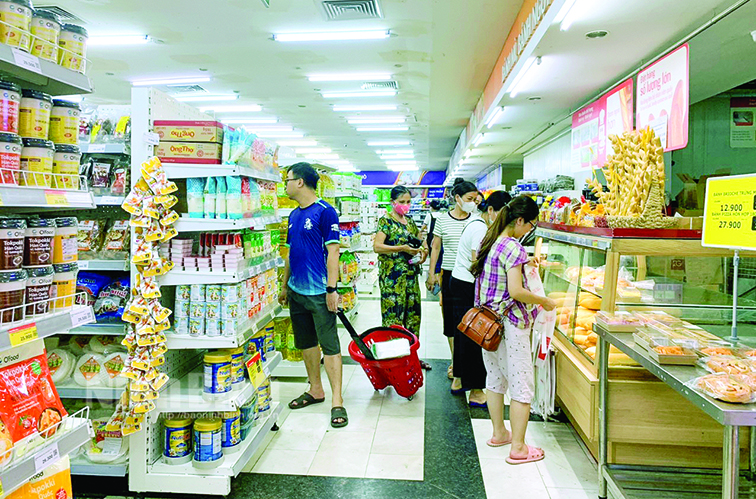Ninh Binh enhances measures to stabilise market

In July alone, the price of petrolon the domestic market fell sharply due to a decrease in the world price. However, the price of several essential commodities still increased. Notably, the growing prices of animal feeds resulted in a rise in the prices of pork, poultry meat and seafood.
According to a survey of the provincial Department of Industry and Trade, the prices of food and foodstuff remained high at the start of August though petrol prices have been revised down four times.
The index of tourism, restaurant and catering servicesalso increased due to the high demand during the summer holiday.
The index of electricity and water was also up, attributable to the increasing demand in the hot season.
A representative of Ha Dung Company in Ninh Binh city said though the economy has been reviving, the consumption of commodities is limited. Beverages have the highest revenue thanks to the rising demand during the summer and the increasing numbers of visitors while the prices of some imported goods such as cooking oil, milk and industrial food remain high.
According to the provincial Statistics Office, the prices of commodities in August witnessed remarkable increases as compared to that of June. Eight out of 11 groups of goods saw their prices going up, namely restaurant and catering services (4.61%); beverages and cigarettes (2.24%); housing and electricity, water supply andconstruction materials (1.77%); home appliances (1.15%); entertainment, culture and tourism (0.23%); medicine and medical services (0.04%) and education (0.01%).
Meanwhile, transport service is the only group enjoying a decrease, down 1.36%.
Nguyen Khai Hoan, Head of the Division of Trade Management under the Department of Industry and Trade, said in an attempt to enhance the management and stabilisation of the prices of essential commodities and services which have great impacts on the lives of local residents and production and trade activities of individuals and organisations, the Department of Industry and Trade has worked with sectors and localities to keep aclose watch on the market's developments, implement measures to balance the domestic supply-demand, stablise prices, and prevent commodity shortages, speculation and unreasonable price hikes.
In particular, it has strengthened state management of commodities and services after petrol prices were reduced a bid to control inflation, ensure the lives of local people and trade and production activities, thus helping to stablise macroeconomy and promote economic growth.
Translated by Nguyen Thuy


